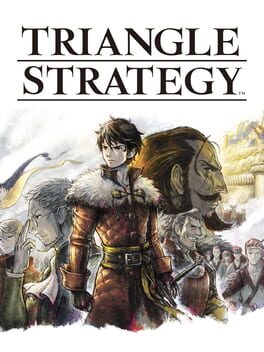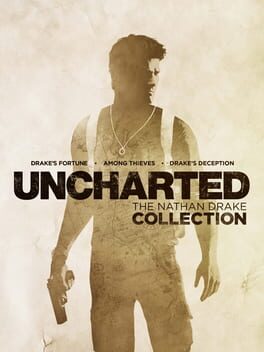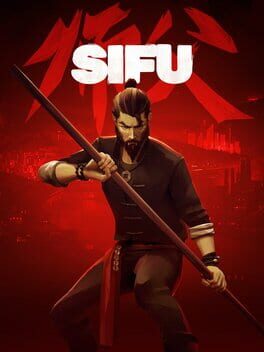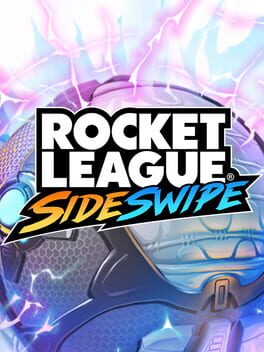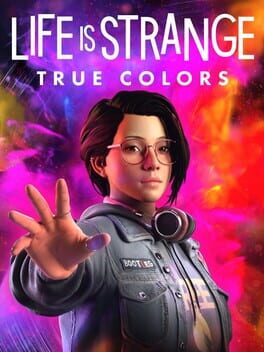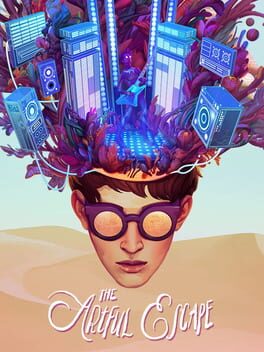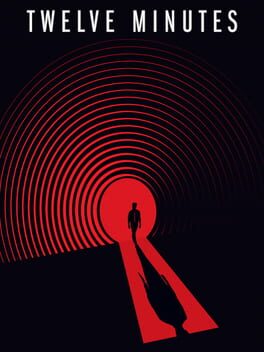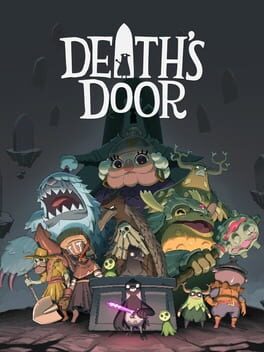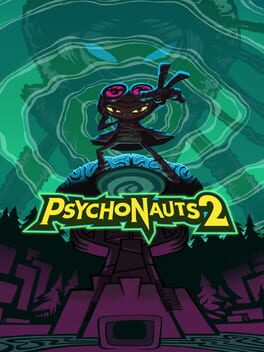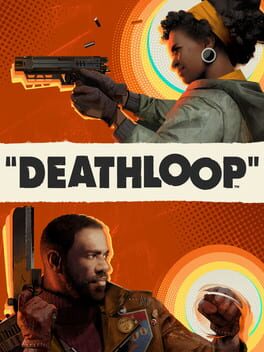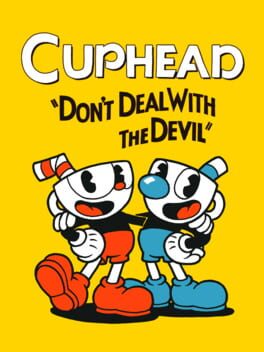Queso_Gatame
2022
Just rolled credits on my first playthrough, and my feelings are mixed.
The thing that stands out most about this game is how story-heavy it is. I spent the entirety of a two-hour flight playing this game without getting to any actual gameplay. This will be a deal breaker for some and fine for others. My take is that the story, while moderately interesting, isn't compelling enough to warrant the some of the game's absurdly long dialogue segments.
As for the battles: they're good, but not great. Fire Emblem does it better.
The thing that stands out most about this game is how story-heavy it is. I spent the entirety of a two-hour flight playing this game without getting to any actual gameplay. This will be a deal breaker for some and fine for others. My take is that the story, while moderately interesting, isn't compelling enough to warrant the some of the game's absurdly long dialogue segments.
As for the battles: they're good, but not great. Fire Emblem does it better.
This is my first time playing the Uncharted series. My score is the average of the score I would give each game individually.
Uncharted 1: Awkward cover shooting sections separated by linear corridors with some horrendous jetski portions sprinkled in as a gimmick. Story is generic Hollywood. 4/10.
Uncharted 2: Mechanics are improved and we're starting to see the impressive action set pieces the series is known for. Shooting is better but still not good. Story is generic Hollywood. 5/10.
Uncharted 3: Mechanics continue to improve and the set pieces have gotten genuinely really cool. The way Drake himself controls still feels frustratingly wonky and inconsistent, especially in heated firefights. Story continues to be generic Hollywood, which just keeps wearing thinner the longer I spend with the series. 6/10.
Uncharted 1: Awkward cover shooting sections separated by linear corridors with some horrendous jetski portions sprinkled in as a gimmick. Story is generic Hollywood. 4/10.
Uncharted 2: Mechanics are improved and we're starting to see the impressive action set pieces the series is known for. Shooting is better but still not good. Story is generic Hollywood. 5/10.
Uncharted 3: Mechanics continue to improve and the set pieces have gotten genuinely really cool. The way Drake himself controls still feels frustratingly wonky and inconsistent, especially in heated firefights. Story continues to be generic Hollywood, which just keeps wearing thinner the longer I spend with the series. 6/10.
2022
2022
I don't really know how to rate simple mobile games like this, since it feels weird to compare them to full-size games on console or PC. This one's quite fun. The touchscreen controls are slightly wonky in a way that feels kind of intentional, but also gives a decided advantage to people who choose to play with a controller. The matchmaking is also pretty bad -- there's no way to tell what your opponent's rank is unless they choose to reveal it through a banner or emote, but I know from that that I was frequently matched against players one, two, or even three tiers above me.
So, generally speaking, I'm kind of on the fence about "choose your own adventure" style games. Offering the player simple branching paths is one of the least interesting forms of interactivity, in my opinion.
But this game executes on that concept about as well as you possibly could. There's genuine moral complexity to the questions the game poses, and the consequences of your choices will have an emotional resonance rarely found in video games.
But this game executes on that concept about as well as you possibly could. There's genuine moral complexity to the questions the game poses, and the consequences of your choices will have an emotional resonance rarely found in video games.
2021
I really don't know how to score games like this.
On the one hand, it's unrelentingly, psychedelically beautiful. This is clearly the main thing the game sets out to achieve and it achieves it spectacularly.
On the other hand, I find myself asking the same question I asked after playing Night In The Woods: Why is this a video game? In my view, none of what's great about this game is enhanced by the smidge of interactivity they've included -- if anything, the interactivity makes it worse. It means that the ecstatic flow of the main character prancing through a fantastical world wailing on their holographic guitar is occasionally interrupted by moments of player error. It means that the pacing is thrown off by the need to occasionally give the player the ability to walk around an environment rather than just showing that environment cinematically.
On the one hand, it's unrelentingly, psychedelically beautiful. This is clearly the main thing the game sets out to achieve and it achieves it spectacularly.
On the other hand, I find myself asking the same question I asked after playing Night In The Woods: Why is this a video game? In my view, none of what's great about this game is enhanced by the smidge of interactivity they've included -- if anything, the interactivity makes it worse. It means that the ecstatic flow of the main character prancing through a fantastical world wailing on their holographic guitar is occasionally interrupted by moments of player error. It means that the pacing is thrown off by the need to occasionally give the player the ability to walk around an environment rather than just showing that environment cinematically.
2021
It's cool to see a point-and-click game generating some buzz in 2021. I found this game's story compelling enough to see it through to the end, and it's short enough that there's not too much of it to see through. That said, having to repeatedly click through the game's time loop -- often having to abandon a loop and start over because I chose the wrong dialogue option or something -- was irritating and made the game more tedious than it had to be. The ending was also really confusing, to the point where I had to look up online discussions to feel like I had any idea what was going on.
2021
2021
2021
This review contains spoilers
A wonderfully designed stealth action game that offers an ingenious solution to one of the genre's main design problems.
Most games like this give you a bunch of combat tools but try to discourage you from using them. Dishonored, for example, gives you narrative reasons not to kill people: doing so makes the game's world observably worse. The problem is that it's very easy to abuse quicksave and quickload to get through levels without killing anyone, rendering the combat mechanics mostly useless and ultimately deflating the game's sense of stakes.
Deathloop goes in almost the opposite direction. It takes away quicksave, so you're forced to deal with the consequences of breaking stealth. You also have to kill the game's main antagonists. And because everyone in the game is living in a time loop, there's no real reason to feel bad about killing anyone -- the NPCs themselves barely seem to care about you killing them.
Now these choices could easily have rendered the stealth mechanics obsolete, by Arkane has done an excellent job of balancing out the difficulty level and the costs of dying such that it makes sense to get by unseen when you can. While player skill and the right loadout often do make it possible to brute-force situations -- especially after you've been through the loop enough times to acquire the right equipment -- charging into combat recklessly is still generally a bad idea. This adds an additional interesting decision-point for the player: you have to decide whether it's a good idea to initiate combat based on your loadout, the environment, the number of enemies around, etc.
All in all a beautifully executed game. I think the story is a bit lacking, though. The setting, characters, and overall tone and aesthetic are all pretty charming. But I would have liked to see the two main characters develop some more, and there are some questions that the game leaves frustratingly unanswered.
Most games like this give you a bunch of combat tools but try to discourage you from using them. Dishonored, for example, gives you narrative reasons not to kill people: doing so makes the game's world observably worse. The problem is that it's very easy to abuse quicksave and quickload to get through levels without killing anyone, rendering the combat mechanics mostly useless and ultimately deflating the game's sense of stakes.
Deathloop goes in almost the opposite direction. It takes away quicksave, so you're forced to deal with the consequences of breaking stealth. You also have to kill the game's main antagonists. And because everyone in the game is living in a time loop, there's no real reason to feel bad about killing anyone -- the NPCs themselves barely seem to care about you killing them.
Now these choices could easily have rendered the stealth mechanics obsolete, by Arkane has done an excellent job of balancing out the difficulty level and the costs of dying such that it makes sense to get by unseen when you can. While player skill and the right loadout often do make it possible to brute-force situations -- especially after you've been through the loop enough times to acquire the right equipment -- charging into combat recklessly is still generally a bad idea. This adds an additional interesting decision-point for the player: you have to decide whether it's a good idea to initiate combat based on your loadout, the environment, the number of enemies around, etc.
All in all a beautifully executed game. I think the story is a bit lacking, though. The setting, characters, and overall tone and aesthetic are all pretty charming. But I would have liked to see the two main characters develop some more, and there are some questions that the game leaves frustratingly unanswered.
2021
You know the deal. EA's yearly phoned-in Madden game.
I'm actually glad I played it, though, because it's now my benchmark for a perfectly mediocre game. It basically does everything it sets out to do, but in the most uninspired way possible with almost no real creativity or innovation and with nothing standing out as particularly well done.
I'm actually glad I played it, though, because it's now my benchmark for a perfectly mediocre game. It basically does everything it sets out to do, but in the most uninspired way possible with almost no real creativity or innovation and with nothing standing out as particularly well done.
2020
2019
Unlike many players, this game's core gameplay loop had me hooked from the beginning. I loved just traversing the environment on foot or by bike, holding my breath as I nervously tried to sneak past enemies, etc. As the game progressed, I got deep into building up infrastructure that would allow me to carry packages all over the network easily and without risk of being attacked. I ended up spending hours maxing out my rating with every single settlement. So, needless to say, I had fun with the game.
The writing is standard Kojima, which is to say not standard at all. I really love the way it explored its central themes of isolation and connection, life and death, etc. The way it plays on the ambiguity of the word "strand" is legitimately poetic and especially impressive for someone whose first language isn't English. All that said, the story kind of gets folded in on itself and the mythology becomes so convoluted that it becomes difficult to tell what the game is trying to say. Again, though, that's classic Kojima.
All in all, I'm delighted that the AAA space has room for games like this, and I eagerly await the next offering from one of gaming's great geniuses.
The writing is standard Kojima, which is to say not standard at all. I really love the way it explored its central themes of isolation and connection, life and death, etc. The way it plays on the ambiguity of the word "strand" is legitimately poetic and especially impressive for someone whose first language isn't English. All that said, the story kind of gets folded in on itself and the mythology becomes so convoluted that it becomes difficult to tell what the game is trying to say. Again, though, that's classic Kojima.
All in all, I'm delighted that the AAA space has room for games like this, and I eagerly await the next offering from one of gaming's great geniuses.
2017
